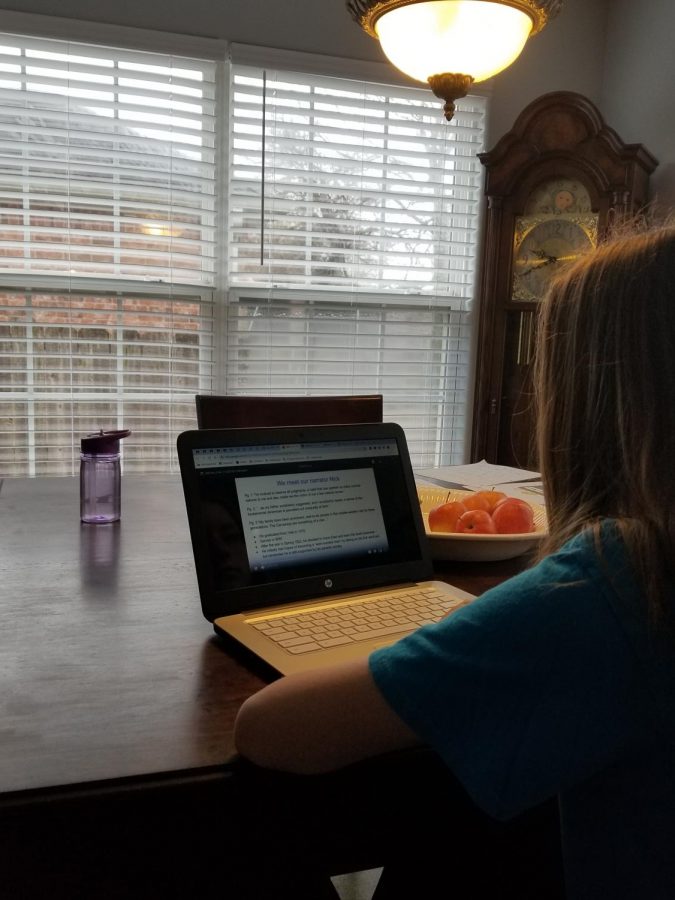AP teachers adapt to new classroom standard due to COVID-19 outbreak
In less than two weeks schools have shut down across the nation in response to the outbreak of COVID-19. Students have resulted in receiving schooling in the form of alternate methods of instruction, more commonly known as AMI days. While the transition is difficult and strenuous for all teachers, Advanced Placement teachers are facing a particularly difficult challenge of continuing to prepare for AP exams in the Spring.
“I’m attempting to make information accessible to as many students as possible. Being online is actually not that difficult; the hard part is keeping students accountable for their learning,” AP Psychology and AP Government and Politics teacher Gena McGee said.
The upheaval from online instruction has completely altered the way in which some teachers are providing instruction for their students.
“The big shift for me was doing a few live Zoom sessions and recording some example problems for my students instead of having a live class discussion. Other than a few students who logged on live, I have not had much interaction with them,” AP Calculus teacher Travis Fink said. “I think one of my strengths as an instructor is being able to ask good questions and get students discussing mathematics and this has been almost completely eliminated now.”
Teachers are facing different challenges concerning the shift to online instruction.
“Not knowing whether students were engaging with the material and actually working hard at learning,” Fink said. “Also, I value being able to discuss with the class and share ideas. This has stopped, at least for right now, and has been difficult.”
Other teachers are concerned with the challenges being faced by students who do not have a reliable internet connection at home.
“A challenge is making sure all students are getting what they need. I think there are really cool ways for online learning to work, but not every student is online. Their assignments look different,” McGee said.
The suspension of on-site education may have further reaching consequences in regard to AP testing and scores.
“I don’t know, but my gut tells me yes. I know the college board is already researching ways to carry on, despite closures across the country, but I lack the creative mind right now to see how it would be possible when it comes to monitoring the integrity of test security,” McGee said.
As of March 20, 2020, the College Board released an update on its website offering information regarding testing. This statement included two potential testing options, an earlier online testing option, or a later testing option occurring further in the Summer months.
However, the earliest of the two potential test dates will be offered after the originally scheduled test date.
“They are going to move all the national exams back at least a week,” APUSH teacher John Stewart said.
With two dates being offered students are given the opportunity to choose between the listed dates.
“I want my students to take it at the earliest possible convenience, once we get this new material learned and get the review sessions hammered out, I’m going to schedule those review sessions up to the earliest date, and I want that as fresh on their mind as possible,” Stewart said. “I don’t want them taking the test in mid June because they will have forgotten some of that stuff.”
The College Board has released a statement that they will be releasing more information regarding test dates, and testing format styles on their website on Friday April 3rd.
